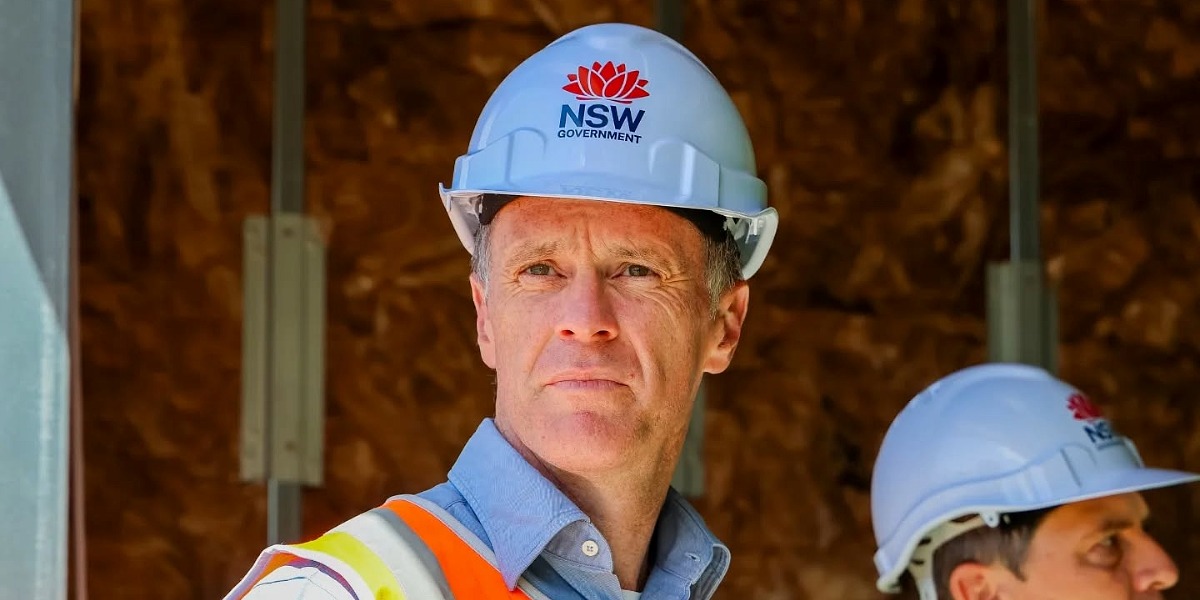NSW Premier Chris Minns has said his government will consider compulsory land acquisition to push forward the Narrabri Gas Project, drawing strong condemnation from NSW Farmers who say the move favours a mining giant over regional communities and water security.
In a speech to the Australian Workers’ Union NSW Delegates Conference on Wednesday, Mr Minns said energy security was critical to New South Wales manufacturing and that the Narrabri project was central to that goal.
“We want land holders to work with Santos and the owners of the fields to come to an agreement that works for both parties,” Mr Minns said.
“But if that doesn’t happen, we will be considering compulsory acquisition of the pipeline easement around the field to ensure that the project gets going and that we can get energy into the manufacturing base of the Hunter for New South Wales.”
Mr Minns described the gas field as vital to the state’s energy mix and economy, linking the failure to progress the project to this week’s news that the Tomago Aluminium Smelter may close due to energy costs.
“The project is incredibly important for New South Wales, important for our state. If one of our problems is the availability of energy, we’ve got half our state’s gas needs right there, ready to go,” he said.
NSW Farmers President Xavier Martin accused the Premier of prioritising the interests of Santos over those of farmers and regional towns dependent on the Great Artesian Basin.
“The Great Artesian Basin and all its connected aquifers are the only source of water for many towns and farms, and Santos’ fracking project at Narrabri poses an incredible threat to this vital water source.
“The Minns Government, in its quest to shore up local manufacturing, could very well go down in history as the greatest environmental vandals in this nation’s history,” Mr Martin said.
The statement appearing to be critical of manufacturing in the Hunter sits awkwardly alongside a discussion paper the organisation put out last week arguing for the Hunter to become a manufacturing hub for value-adding to agricultural products as part of the transition away from coal.
On Thursday NSW Farmers Board Director Bronwyn Petrie launched Beyond Coal: New Growth for Newcastle and the Hunter, a discussion paper which made claims that agricultural value adding could create 88,000 new jobs and generate an additional $20 billion for the state economy within the near future. The paper called for investing in agricultural training, improving roads and rail, repurposing degraded mining land for renewables, encouraging investment in niche processing and manufacturing, and, at the same time, opposing the Narrabri Gas Project.
““As farmers we see an enormous amount of raw commodity – things like wool and wheat – get shipped off overseas and sold back to us as expensive consumer products,” Mrs Petrie said.
“With targeted investment in skills, roads and rail, and a focus on processing and manufacturing along the route from farm to Port of Newcastle, the Hunter can move from powering the world to feeding and clothing it and prosper in the process.”
“Coal seam gas from Narrabri is not a future-proofing plan, it’s just a cheap sugar hit for the economy while it risks contaminating vital groundwater and the environment. We say there’s a better way, and here’s a more sustainable opportunity for the Hunter to seize,” she said.
When asked to explain the contradiction of proposing activity that would need significant and reliable supplies of gas with opposing the Narrabri Gas Project and similar projects, a spokesperson for NSW Farmers said “You’re right in saying value adding will need a significant and reliable source of energy. But we have some grave concerns about the Narrabri Gas Project, which is simply too risky to proceed.”
A source working on the Hunter Transition said the proposal from NSW Farmers was “naive and misguided”.
“Even if you set aside the opposition to the gas that such manufacturing would need, it isn’t a well thought through idea and it would seem they haven’t done a lot of consultation with those here on the ground.”
“You can’t take guys on huge six figure incomes and suggest they go work in a factory making jam or whatever, earning barely a third of what they’re used to.”
“Everything we’re doing is about finding industries that can use their skill sets and pay them similar money so that the transition is as smooth as possible.”
“NSW Farmers discussion paper even says that the skills sets won’t be transferable from mining to food manufacturing. It feels like they’re just trying to cash in on the transition, rather than seriously contribute to what is a very challenging conversation.”
In a speech to the The Australian’s Energy Nation Forum in Sydney last month, Santos Managing Director and Chief Executive Officer, Kevin Gallagher, said that the nation will begin to face gas shortages from 2027 if the Narrabri Gas Project does not go ahead.
“In New South Wales, which draws 95 per cent of its gas from other jurisdictions, the Narrabri gas project is the only new supply source on the horizon, but approvals processes and litigation are ongoing.
“This is a strategic project for New South Wales that now needs Santos – along with state and federal governments – putting our shoulders to the wheel to make it happen,” he said.
“We owe it to Australians to unlock the incredible wealth from their natural gas resources.”
Got something you want to say about this story? Have your say on our opinion and comment hub, New England Times Engage

